US soldier’s defection to North Korea shows racism permeates US army
By Reza Javadi
On July 18, in dramatic circumstances, a young American soldier crossed into North Korea while taking a civilian tour of an area that divides North from South, much to the surprise of senior US military officials.
At the time, US officials said Travis King had moved into North Korean territory “willfully and without authorization” and was hurriedly driven away by North Korean border guards.
On August 16, after almost a month, North Korea confirmed the cavalry scout who joined the US military in January 2021 was in the country and had applied for refugee there, adding another twist to the saga.
King had admitted to illegally entering North Korea, saying he "harbored ill feeling against inhuman maltreatment and racial discrimination" in the US army, the official Korean Central News Agency said.
“He also expressed his willingness to seek refuge in the DPRK or a third country, saying that he was disillusioned at the unequal American society,” the news report stated.
His mother, Claudine Gates, had urged North Korean authorities to treat him humanely and grant him a phone call to speak with her, according to a spokesman for the family, as reported in media.
The incident comes amid heightened tensions between North Korea and the US over Washington’s growing proximity toward South Korea and Japan and provocative military exercises in the region.
Pyongyang has also significantly ramped up its nuclear and missile programs since talks between former US President Donald Trump and North Korean leader Kim Jong Un broke down in 2019.
However, what this latest episode, according to experts, highlights is the scourge of structural racism in the US military that prompts King and other people of color in the US to seek refuge in other countries.
Scourge of racism across US army
King’s move is similar to many other Black servicemen who have faced discrimination in US Army. The scourge of racism has hit the US military and society badly in recent decades.
In the last few years, a shocking number of high-ranking African-American senior military officials have revealed the enduring nature of racism in the army ranks.
In 2020, Gen. C.Q. Brown posted a damning video on YouTube, revealing his painful experiences as a Black officer shortly before he was confirmed as the new chief of staff of the US Air Force.
He spoke about the “supervisors I perceived had expected less from me,” and then “working twice as hard to prove that their expectations and perceptions of African-Americans were invalid.”
In an especially striking account, he portrayed “wearing the same flight suit with the same wings on my chest as my peers, and then being questioned by another military member, ‘Are you a pilot?’”
General Vincent Brooks, another senior official in the US Army, similarly recalled an incident when he was “personally impacted by explicit and implicit bias”
In an opinion piece published by Harvard Kennedy School's Belfer Center, Brooks spoke out about his “feelings of inadequate and unfulfilled justice that I have felt for too many years of my life” as an African American man in the US Army.
Lt. General Vincent Stewart of the Marine Corps also described his deep pain of “being described as the best black officer in a unit — never described as the best officer in the unit — or never being the first choice for visible prominent assignments, despite a superior record of performance than my peers.”
George Floyd’s murder: ‘Threat of military force on the streets of America’
The senior officers’ revelation of discrimination in the US Army came on the heels of George Floyd’s murder by the US police in Minneapolis, Minnesota on May 25, 2020.
Floyd was an African-American man who was killed after the US policeman knelt on his neck for more than 9 minutes, causing a lack of oxygen, which resulted in his murder.
Floyd's killing, which was captured on video and became the emblem of racial injustice in the US, sparked outrage and worldwide protests in 2020.
“As a retired career military officer from the family of a retired career military officer, I see again the threat of the use of the active duty military force on the streets of America,” Brooks warned following Floyd’s brutal murder.
Data from the US military justice system shows that Black servicemen are more likely to be court-martialed and face more severe judicial punishments than their white peers – including in cases that involve the death penalty.
Furthermore, the US military’s judicial system has no explicit category for hate crimes, making it difficult to quantify crimes motivated by prejudice.
Racism against Black female military personnel
Racism and discrimination across the US military is not limited to male servicemen alone. It also targets the Black American woman serving in the military.
Stephanie Davis, a lieutenant colonel in the US military, spoke of her harrowing experience in the US Air Force, where she was given the call sign of ABW– an “angry black woman,” a classic racist trope – by her service colleagues.
“For Blacks and minorities, when we initially experience racism or discrimination in the military, we feel blindsided,” Davis was quoted as saying.
“We’re taught to believe that it’s the one place where everybody has a level playing field and that we can make it to the top with work that’s based on merit.”
Apart from racial discrimination, female personnel also suffer from sexual assaults across the military.
According to the 2022 annual report on sexual assault in the US military, at least 7,378 reports of sexual assault against service members were registered in the year.
Additionally, 797 Defense Department civilians, who work in the financial, technical, and support sectors of the Army, were also reported to be assaulted by service members, in addition to 580 service members who reported being assaulted before their military service, according to a report by CNN.
Witnessing the suppression of Black personnel and the white supremacist ideology, the Southern Poverty Law Center, which is an American nonprofit legal advocacy organization specializing in civil rights and public interest litigation, called for urgent action from the government to tackle the issue.
“Those who are indoctrinated into white supremacist ideology present a significant threat to national security and the safety of our communities,” SPLC President Margaret Huang wrote, as cited by the Associated Press.
‘White male culture'
Thomas Hobbs, a former infantry colonel in the Marine also revealed “white male culture” which stretched over the Marine Corps and said many of the black troops cannot tolerate this culture.
“Many of them don’t stay in the military past their 10th year,” Hobbs said, as cited by the AP.
“Why don’t they stay in? Because they’re exhausted from having to act a certain way all the time and they can never be themselves,” he added.
African-Americans have served in the US military in every war the United States has fought.
However, current and former officers in every branch of the US armed services have repeatedly described the deep-rooted culture of racism and discrimination that festers the system.
Journalist Tucker Carlson says he was detained in occupied territories after interview with US amb.
VIDEO | Is there any hope for Russia-Germany relations?
VIDEO | Israeli land grab policies
Nuclear chief: Israeli infiltration, sabotage drove Iran towards nuclear self-sufficiency
IRGC intel. chief: Enemies devised 7-stage plot for recent riots
Israeli minister calls to 'encourage' Palestinian exodus
VIDEO | Press TV's news headlines
VIDEO | Near breakdown: Generators in Gaza’s main hospitals


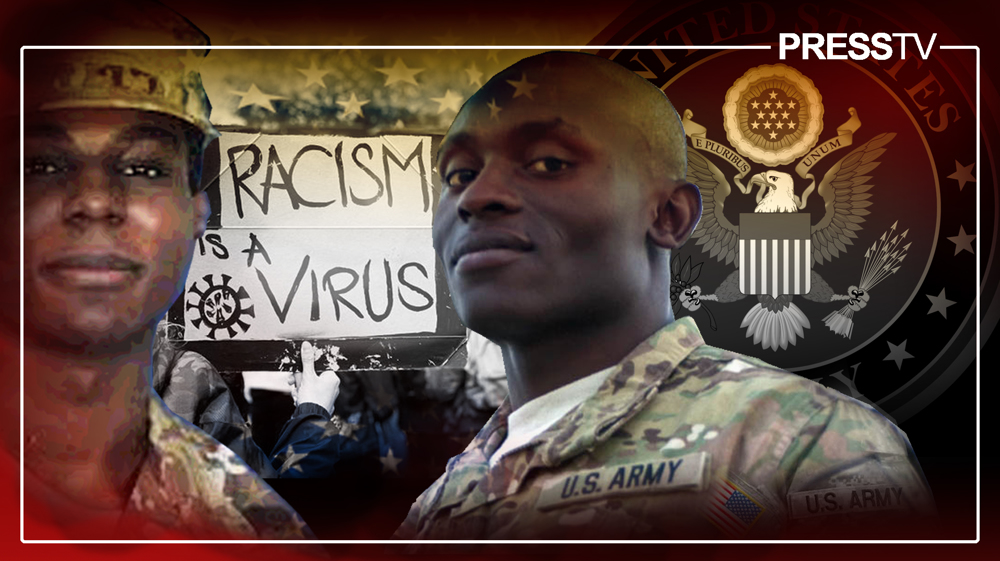

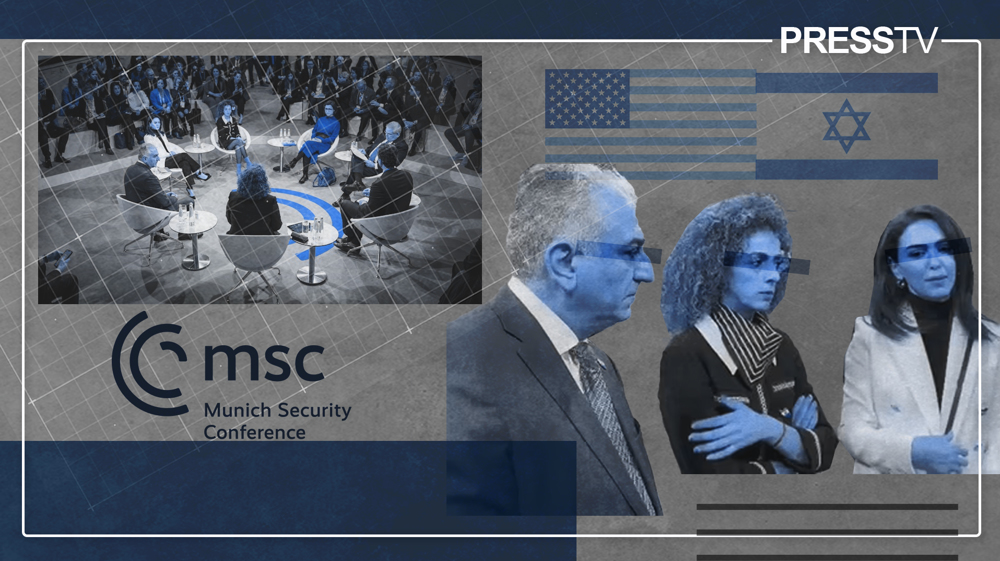




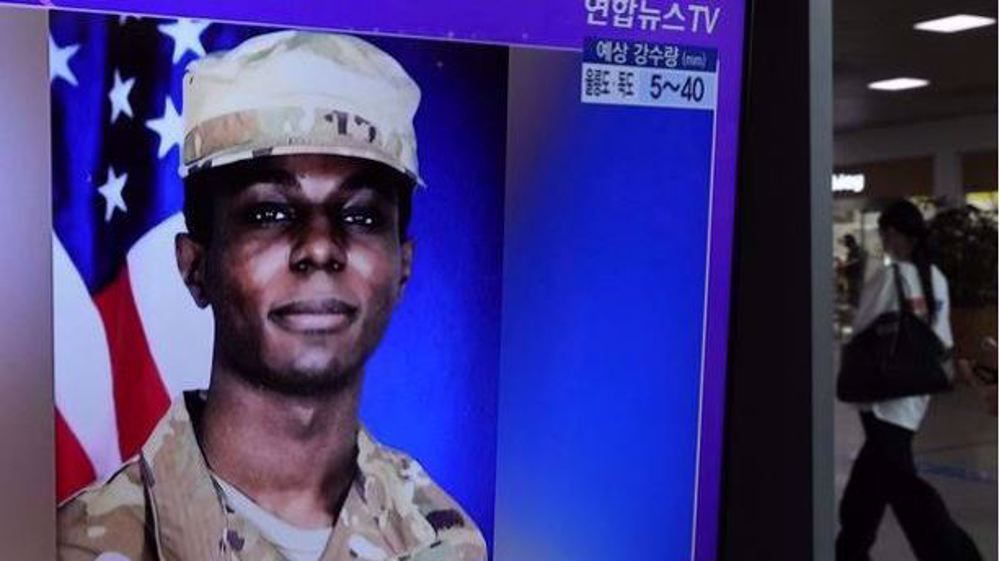
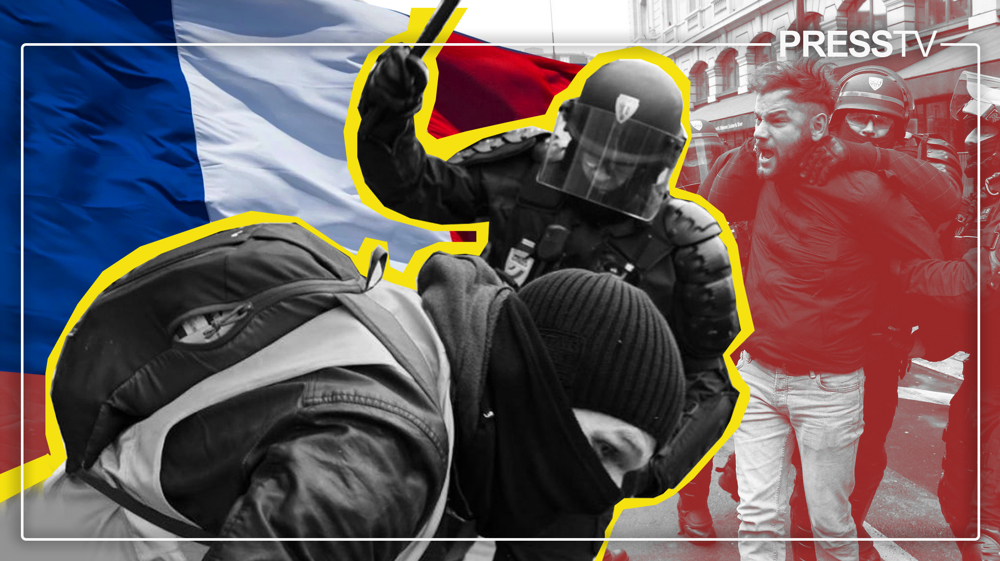


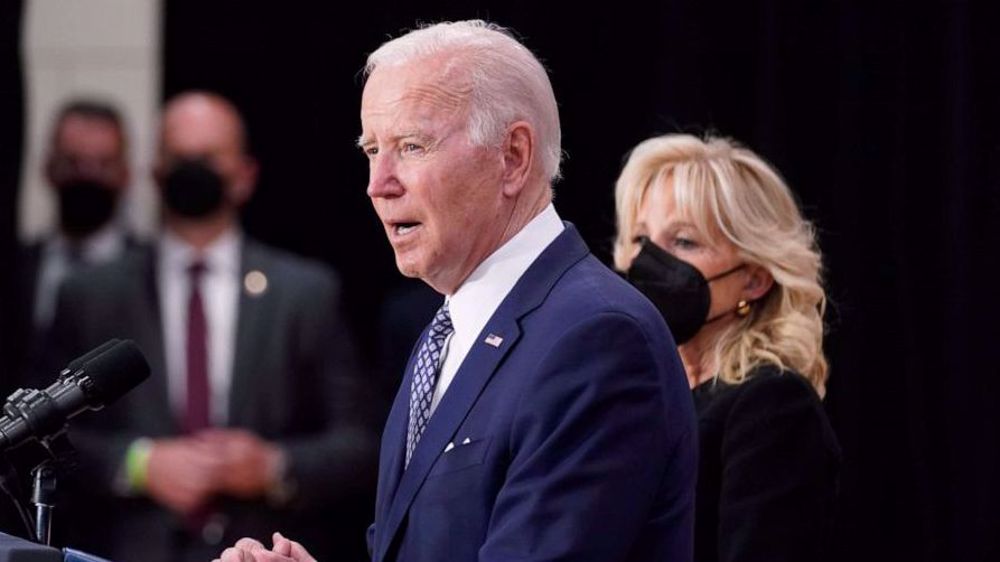

 This makes it easy to access the Press TV website
This makes it easy to access the Press TV website